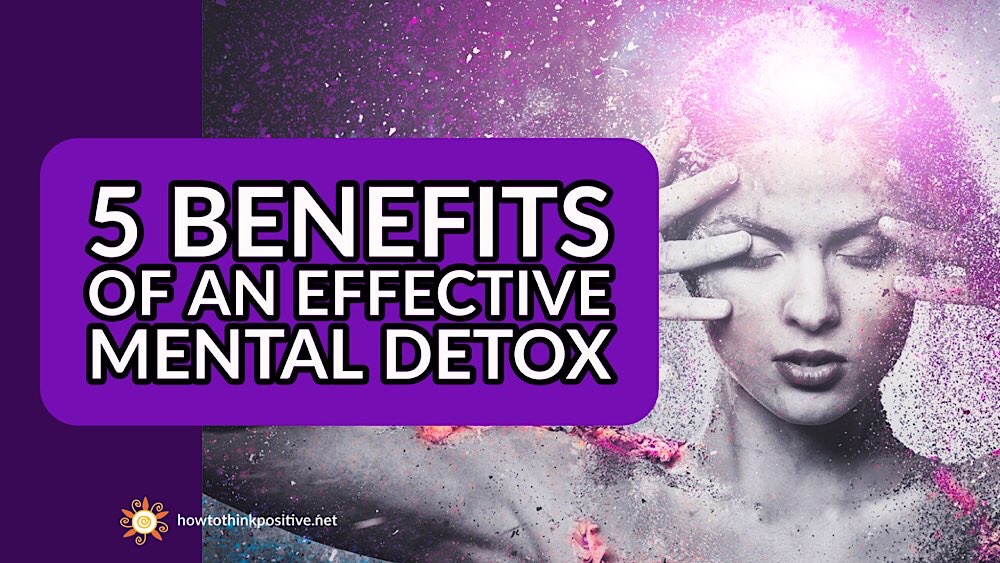Why Treating Mental Health Is So Important During Detox
Why treating mental health is so important during detox? It’s a question that deserves more than a simple answer. Addiction and mental health are intricately linked; often, one fuels the other, creating a vicious cycle. Detox, while crucial for physical recovery, can be incredibly challenging mentally and emotionally. Ignoring this crucial aspect can lead to relapse and hinder long-term recovery.
This exploration delves into the vital connection between mental wellness and successful detoxification.
Understanding this connection is key. Untreated mental health conditions, like anxiety, depression, or PTSD, can significantly increase the risk of substance abuse and relapse. The stress of withdrawal itself exacerbates existing mental health issues, leading to a heightened need for support and specialized care. This article will discuss the various ways mental health treatment during and after detox is essential for achieving lasting recovery.
The Crucial Link Between Mental Health and Detox: Why Treating Mental Health Is So Important During Detox
Successfully navigating detoxification from substance abuse requires a comprehensive approach that acknowledges the intricate relationship between addiction and mental health. Ignoring the mental health aspect during detox can significantly hinder recovery and increase the risk of relapse. This article explores the importance of integrating mental health treatment into the detoxification process, highlighting the benefits and various treatment approaches.
The Intertwined Nature of Addiction and Mental Health
Addiction and mental health disorders often coexist, creating a complex interplay that impacts treatment outcomes. Untreated mental health conditions can significantly increase the likelihood of substance abuse as individuals may self-medicate to cope with symptoms like anxiety, depression, or trauma. Conversely, substance abuse can exacerbate existing mental health issues or trigger new ones. This dual diagnosis requires a holistic approach to treatment.
- Pre-existing mental health conditions, such as depression, anxiety, PTSD, and bipolar disorder, can increase vulnerability to substance abuse.
- Substance abuse can worsen existing mental health conditions or trigger new ones, leading to a vicious cycle.
- Examples of common co-occurring disorders include depression and alcohol abuse, anxiety disorders and opioid addiction, and PTSD and substance abuse.
Mental Health Challenges During Detoxification

Detoxification, the process of withdrawing from substances, is physically and psychologically demanding. The body and mind undergo significant changes, leading to a range of challenging mental health symptoms.
- Anxiety: Heightened feelings of worry, nervousness, and fear are common, often stemming from both physical withdrawal symptoms and the emotional turmoil of quitting.
- Depression: Low mood, loss of interest in activities, and feelings of hopelessness are frequently experienced during detox, exacerbated by hormonal imbalances and the emotional challenges of recovery.
- Irritability: Increased frustration, anger, and difficulty controlling emotions are typical, resulting from physiological changes and emotional distress.
- Sleep disturbances: Insomnia and other sleep problems are prevalent, further contributing to emotional instability.
These symptoms are driven by both physiological factors (neurochemical changes in the brain due to substance withdrawal) and psychological factors (emotional distress, fear of relapse, and coping mechanisms). Effective management requires a multifaceted approach combining medication, therapy, and supportive care.
The Importance of Mental Health Treatment During Detox

Integrating mental health treatment into detox is crucial for successful long-term recovery. Addressing underlying mental health issues directly improves the chances of sustained sobriety and overall well-being.
- Improved treatment outcomes: Simultaneous treatment for addiction and mental health conditions leads to better recovery rates and reduced relapse.
- Reduced relapse risk: Addressing underlying mental health issues minimizes the likelihood of relapse by equipping individuals with coping mechanisms and emotional support.
- Enhanced quality of life: Improved mental health contributes to a better overall quality of life, fostering personal growth and increased resilience.
- Prevention of long-term consequences: Neglecting mental health during detox can lead to chronic mental health issues, worsening substance abuse, and decreased overall health.
Treatment Approaches for Co-occurring Disorders, Why treating mental health is so important during detox
Various treatment modalities effectively address co-occurring disorders. A tailored approach, often combining several therapies, is typically most beneficial.
Navigating the mental healthcare system can be tricky, especially for young people. Knowing your rights is crucial, and for minors in Wisconsin, understanding the age at which they can object to their treatment is vital. Check out this resource on the Wisconsin age at which minors can protest mental health treatment to be better informed. This is particularly important when considering the complexities of adolescent mental health.
For those interested in a career helping young people, a residency program like the Woodhull Medical and Mental Health Center program internal medicine residency could be a great option, providing valuable experience in a relevant field.
- Cognitive Behavioral Therapy (CBT): Helps individuals identify and change negative thought patterns and behaviors that contribute to substance abuse and mental health issues.
- Dialectical Behavior Therapy (DBT): Teaches coping skills for managing intense emotions and improving interpersonal relationships, particularly useful for individuals with borderline personality disorder.
- Trauma-informed therapy: Addresses the impact of past trauma on substance abuse and mental health, providing a safe and supportive environment for healing.
- Medication-assisted treatment (MAT): Uses medications to manage withdrawal symptoms, cravings, and co-occurring mental health conditions. Examples include medications for opioid addiction (methadone, buprenorphine) and antidepressants for depression and anxiety.
Supporting Mental Wellbeing Post-Detox
Maintaining mental well-being after detox is crucial for preventing relapse. Ongoing support and strategies are essential for long-term recovery.
- Continued therapy: Regular therapy sessions provide ongoing support, relapse prevention strategies, and coping mechanisms.
- Support groups: Peer support groups offer a sense of community and shared experience, reducing feelings of isolation.
- Healthy lifestyle choices: Exercise, balanced nutrition, and sufficient sleep promote mental and physical health.
- Relapse prevention planning: Developing a personalized relapse prevention plan that addresses both addiction and mental health needs is critical.
The Role of Support Systems in Mental Health Recovery
Strong social support networks are invaluable during and after detox. Family, friends, and peer support groups play a vital role in recovery.
- Family support: Educated and supportive family members can provide emotional encouragement and practical assistance.
- Friends: Trusted friends can offer companionship, accountability, and a sense of belonging.
- Peer support groups: Groups like Alcoholics Anonymous (AA) and Narcotics Anonymous (NA) provide a safe space for sharing experiences and receiving support from others in recovery.
Addressing Stigma Surrounding Mental Health and Addiction

Stigma surrounding mental health and addiction creates significant barriers to seeking help. Addressing this stigma is crucial for promoting help-seeking behavior and fostering recovery.
Navigating the mental healthcare system can be tricky, especially for young people. Knowing your rights is crucial, so it’s helpful to understand the Wisconsin age at which minors can protest mental health treatment. This is especially important when considering the long-term implications of care. For those pursuing a career in medicine, a strong foundation is essential.
The Woodhull Medical and Mental Health Center program internal medicine residency offers a comprehensive training experience that prepares future physicians to effectively address the diverse needs of patients, including those with mental health concerns.
- Open conversations: Openly discussing mental health and addiction reduces the shame and isolation associated with these issues.
- Education and awareness: Educating the public about mental health and addiction helps to dispel myths and misconceptions.
- Empathy and understanding: Treating individuals with empathy and understanding can help to reduce stigma and promote help-seeking behavior.
Successfully navigating detox requires a holistic approach that prioritizes both physical and mental well-being. Ignoring the mental health component is akin to treating only half the problem. By addressing underlying mental health issues alongside addiction, individuals can significantly improve their chances of long-term recovery and build a more fulfilling life free from the grip of substance abuse. Remember, seeking help is a sign of strength, not weakness, and support is readily available for those who need it.
Share this content:
